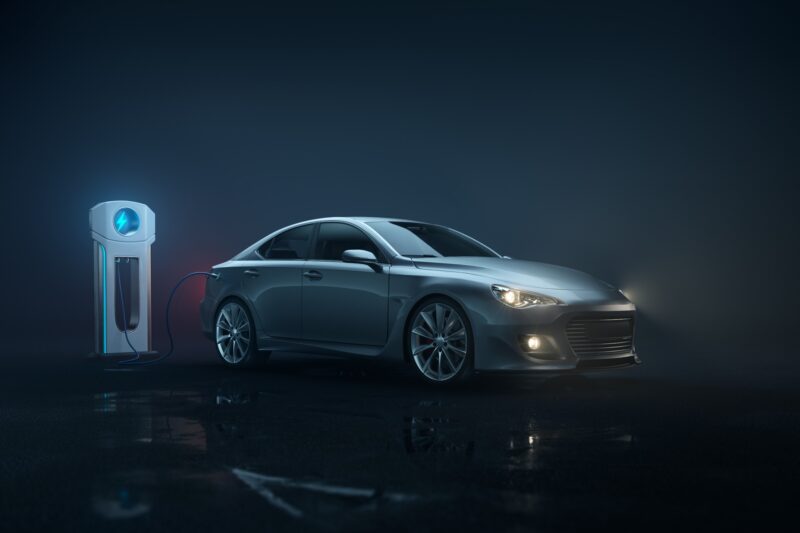Toppe Consulting – Your Source for Digital News & Trends in the Legal Industry
On June 5, 2025, electric vehicle battery manufacturer AESC paused construction on its $1.6 billion Florence County facility, citing “policy and market uncertainty.” The Japanese company had already invested over $1 billion into what was slated to become the Pee Dee region’s largest economic development project, promising 1,600 jobs.
For law firms, this pause highlights the growing demand for legal services in South Carolina’s EV ecosystem as companies navigate policy volatility and market shifts.
The AESC Timeline
- 2022: AESC announces battery cell manufacturing facility in Florence County to supply BMW’s Spartanburg operations.
- March 2024: Company announces $1.5 billion expansion for a second facility.
- February 2025: AESC withdraws second facility plans; South Carolina withdraws $111 million in incentive bonds.
- June 2025: Company pauses construction on the $1.6 billion facility indefinitely.
Three Factors Driving Policy Uncertainty
Federal EV Tax Credit Uncertainty: The Trump administration and congressional Republicans have pursued elimination of the $7,500 federal EV tax credit through budget reconciliation. This credit has driven EV adoption and battery manufacturing demand.
Tariff Policy Volatility: Sweeping tariff increases on imported components have created cost uncertainty for battery manufacturers. Unpredictable tariff policy makes long-term capital planning difficult.
Softening EV Market Growth: According to a June 2025 AAA survey, only 16% of U.S. adults reported being “very likely” or “likely” to purchase a fully electric vehicle as their next car—the lowest percentage since 2019. Interest in EVs to take advantage of tax credits dropped from 60% in 2024 to 39% in 2025.
The Broader EV Investment Slowdown
AESC joins a wave of stalled and canceled clean energy projects since President Trump took office in January 2025. Kore Power cancelled its planned $1.2 billion lithium battery factory in Arizona, and Stellantis cancelled its $3.2 billion EV battery facility in Illinois.
As Greenville’s manufacturing sector continues growing, law firms positioned to serve companies navigating these challenges will see increased demand for their services.
Legal Issues Arising from Economic Development Pauses
AESC remains eligible for over $255 million in public funding—$135 million in grants from the S.C. Department of Commerce and $121 million in state-issued bonds. South Carolina officials stated these incentives are “not currently at risk” despite the pause.
This situation raises questions about incentive package structures, clawback provisions, performance milestones, and how long projects can remain “paused” before incentives are withdrawn. Economic development agreements must address these scenarios clearly.
BMW invested $700 million in its own battery assembly facility in Woodruff, designed to integrate AESC battery cells. BMW publicly stated AESC’s pause “doesn’t change its plans to open its plant in 2026,” but this creates potential contractual complexities if AESC’s pause extends significantly.
Florence County and South Carolina invested significantly in workforce development programs anticipating 1,600 AESC jobs. State Representative Roger Kirby called the pause “a gut punch,” noting impacts extending to housing, planned development, and potential supplier companies.
Why This Creates Opportunities for Law Firms
Companies involved in EV supply chains are examining force majeure provisions, material adverse change clauses, and multi-party agreements. They’re reviewing federal policy risk allocation, economic development incentive structures, and supply chain contract scenarios.
Law firms serving this sector need strong digital visibility. When a manufacturer or supplier searches for guidance on project pauses, incentive agreements, or supply chain disruptions, your firm should appear first. This requires establishing thought leadership through legal commentary on manufacturing and economic development issues.
South Carolina’s EV Ecosystem Moving Forward
Despite AESC’s pause, South Carolina remains committed to EV manufacturing. Volkswagen-owned Scout Motors is investing $2 billion in an electric SUV plant near Columbia, expected to create 4,000 jobs and open in 2027. BMW’s $700 million battery assembly facility in Woodruff remains on schedule. BMW is investing $1 billion to prepare Plant Spartanburg for EV production, with at least six fully electric BMW X models planned by 2030. The state’s automotive sector attracted $4.3 billion in new investment in 2023, much of it EV-related.
Governor McMaster urged patience: “We hate to see that happen, but a pause is OK. Let things play out, because all of these changes are taking place. Give it some time, and it will work out.”
South Carolina’s track record with international manufacturers like BMW, Michelin, and Samsung remains strong, though “uncertainty in Washington, D.C.” creates unique challenges for EV projects.
Positioning Your Firm to Capture EV Sector Work
Manufacturing companies conducting online research need to find your firm. When they search “economic development attorney South Carolina” or “supply chain contract lawyer Florence,” your website should dominate those results.
Content marketing is essential. Regular articles addressing EV market shifts, incentive agreements, and economic development issues demonstrate expertise. This positions your firm as the resource when companies face urgent legal questions.
Attorneys representing EV sector clients benefit from strategic content marketing that showcases their manufacturing and economic development experience. Client case studies demonstrating expertise in multi-stakeholder coordination further establish authority.
How Toppe Consulting Helps Law Firms Capture EV Manufacturing Clients
At Toppe Consulting, we specialize in digital marketing exclusively for law firms. We understand that manufacturing and economic development clients conduct extensive online research before selecting counsel.
We build SEO-optimized websites that showcase your EV sector, manufacturing, and economic development expertise. Our content marketing establishes your authority through regular articles on issues affecting manufacturers. We manage Google Ads campaigns targeting companies searching for specific legal services.
Most importantly, we help law firms convert website visitors into consultation requests. When a company executive visits your site searching for guidance on project pauses or incentive agreements, your contact forms, calls-to-action, and mobile-responsive design should make scheduling a consultation effortless.
The EV landscape continues evolving, creating ongoing demand for sophisticated legal counsel. Law firms with strong digital marketing strategies will capture this work.
About the Author
Jim Toppe is the founder of Toppe Consulting, a digital marketing agency specializing in law firms. He holds a Master of Science in Management from Clemson University and teaches Business Law at Greenville Technical College. Jim also serves as publisher and editor for South Carolina Manufacturing, a digital magazine. His unique background combines legal knowledge with digital marketing expertise to help attorneys grow their practices through compliant, results-driven strategies.
About Toppe Consulting: We provide website development, SEO, and digital marketing services exclusively for law firms. Our expertise in legal marketing helps attorneys attract and convert their ideal clients online.
Ready to grow your firm’s EV and manufacturing practice? Contact us to discuss how we can help your firm capture more clients through strategic digital marketing.
This article is for informational purposes only and does not constitute legal advice.
Works Cited
“AESC Halts Construction on $1.6B Battery Cell Facility in South Carolina.” Manufacturing Dive, 11 June 2025, www.manufacturingdive.com/news/aesc-halts-construction-1-6-bmw-ev-battery-cell-plant-south-carolina/750335.
“AAA: Americans Slow to Adopt Electric Vehicles.” AAA Newsroom, 3 June 2025, newsroom.aaa.com/2025/06/aaa-ev-survey.
Holdman, Jessica. “Electric Vehicle Battery Company Halts Construction of SC Manufacturing Plant.” SC Daily Gazette, 6 June 2025, scdailygazette.com/2025/06/05/electric-vehicle-battery-company-halts-construction-of-sc-manufacturing-plant.
Schechter, Maayan. “EV Battery Maker AESC Pauses Florence SC Plant Construction.” South Carolina Public Radio, 6 June 2025, www.southcarolinapublicradio.org/sc-news/2025-06-06/ev-battery-maker-aesc-pauses-florence-sc-plant-construction.
“South Carolina Department of Commerce.” SC Department of Commerce, www.sccommerce.com. Accessed 11 Oct. 2025.
U.S. Internal Revenue Service. “Credits for New Clean Vehicles Purchased in 2023 or After.” IRS.gov, www.irs.gov/credits-deductions/credits-for-new-clean-vehicles-purchased-in-2023-or-after. Accessed 11 Oct. 2025.




